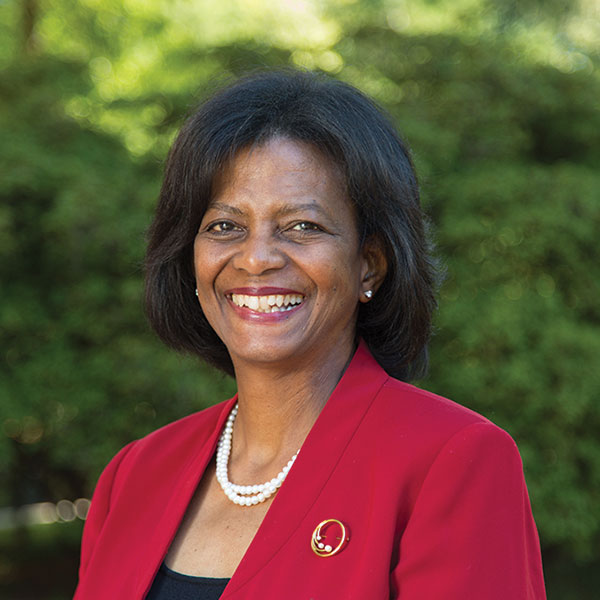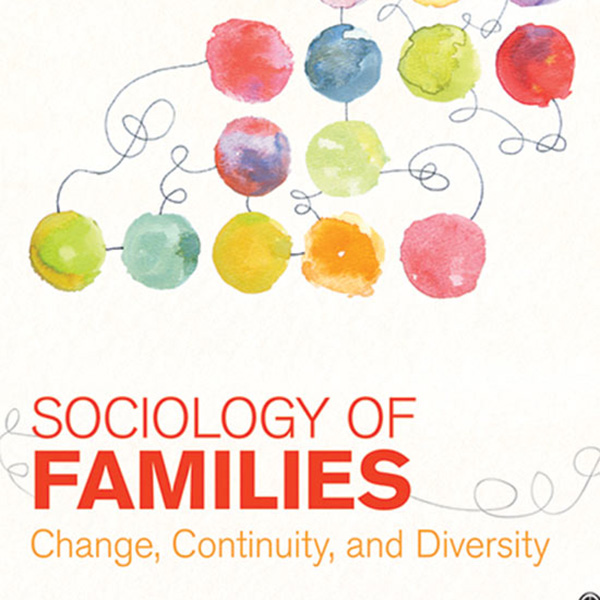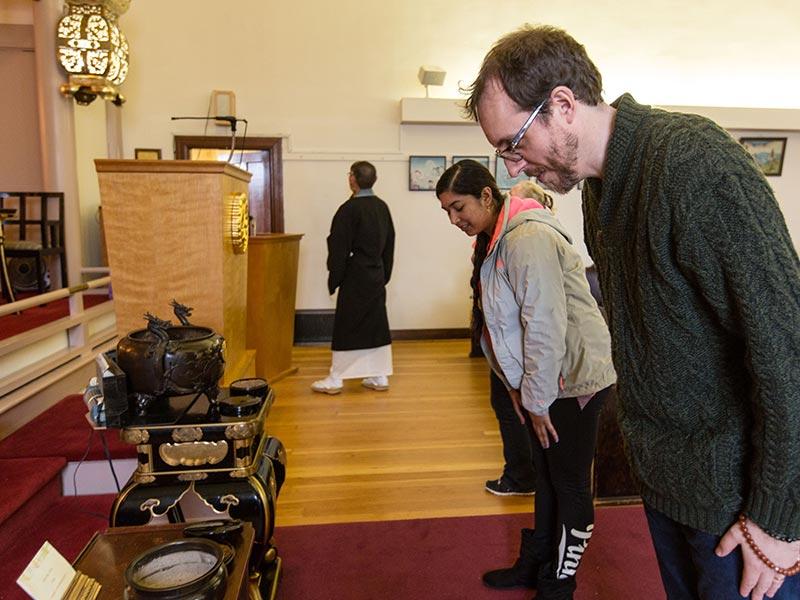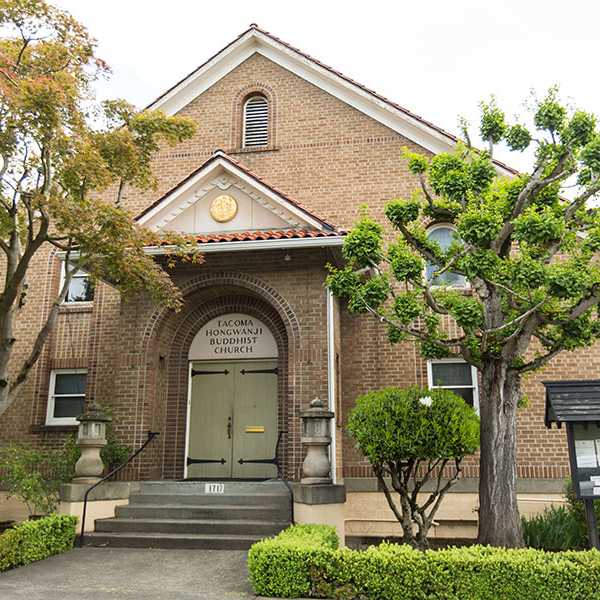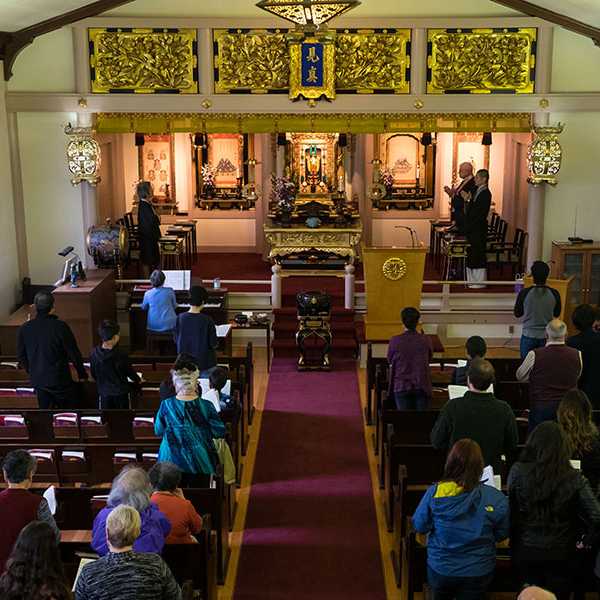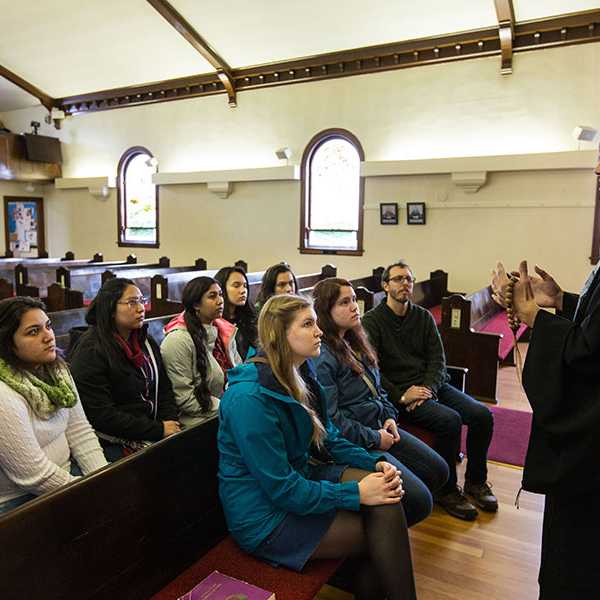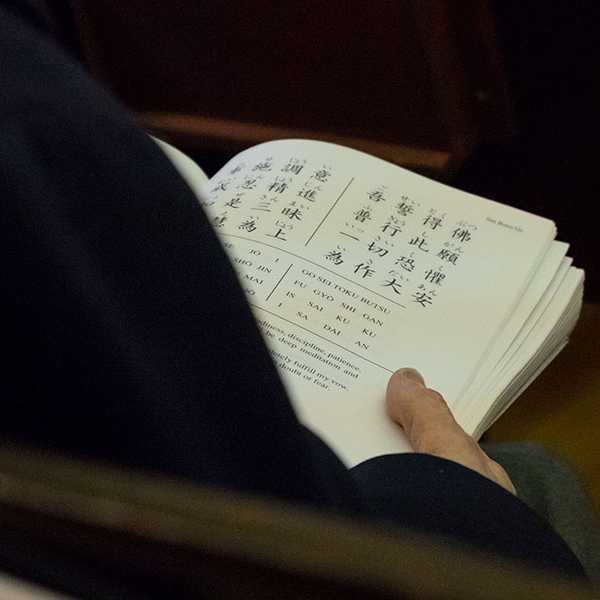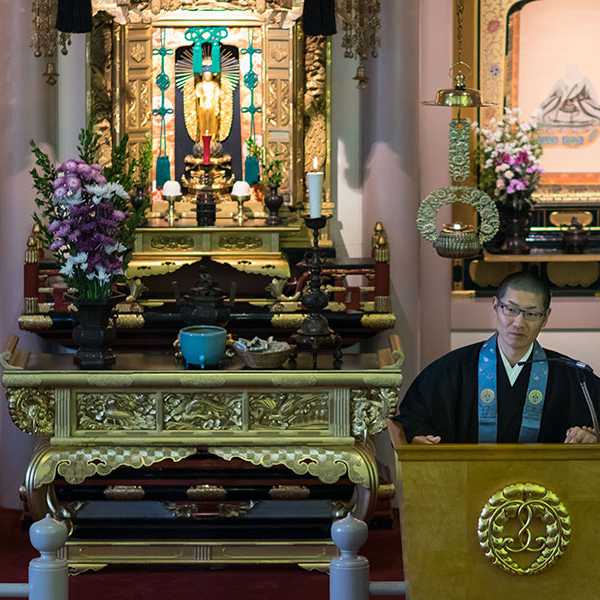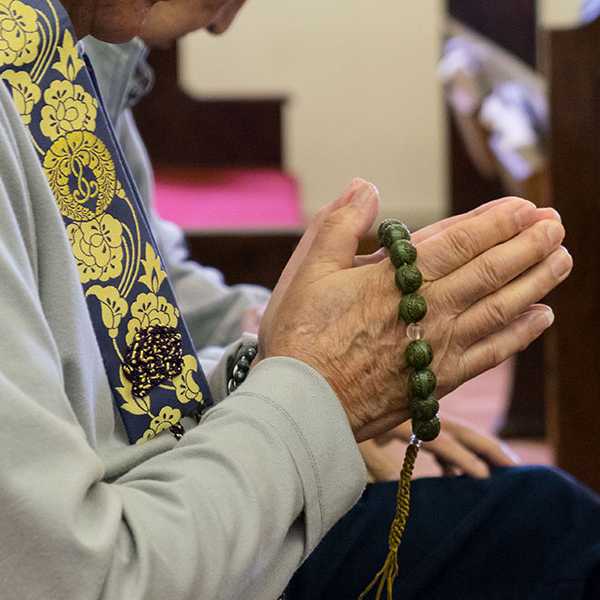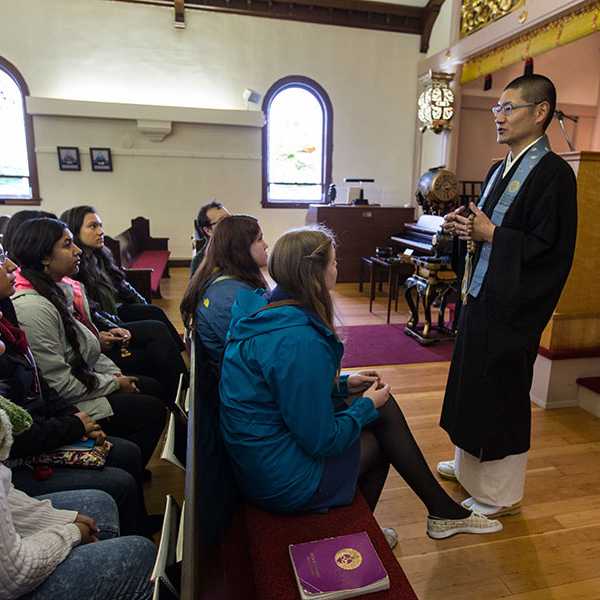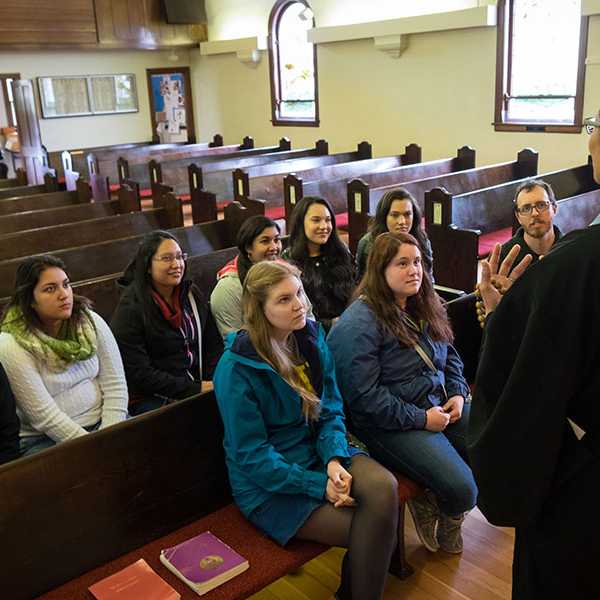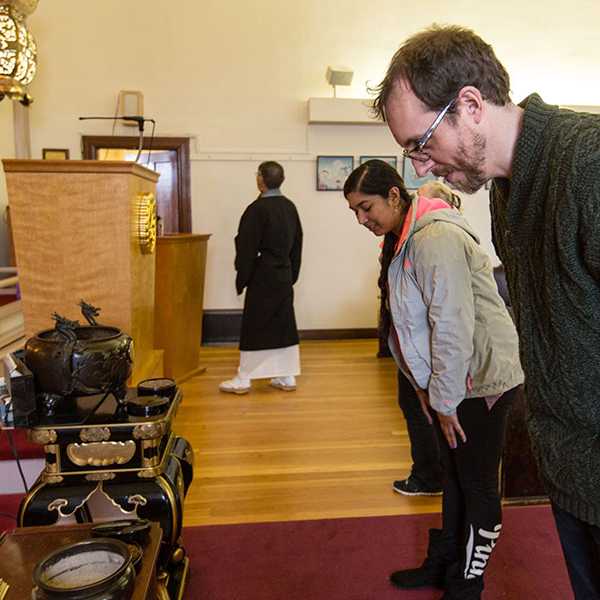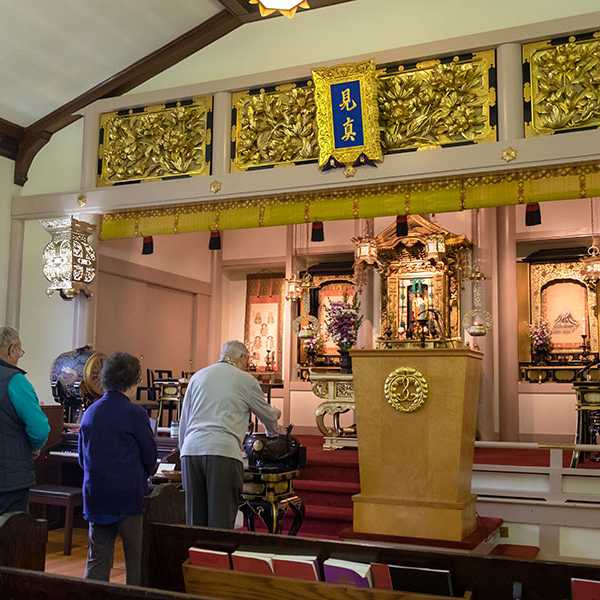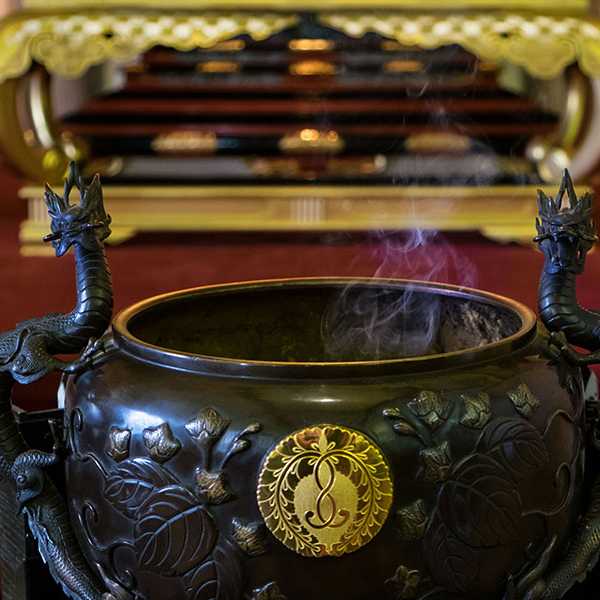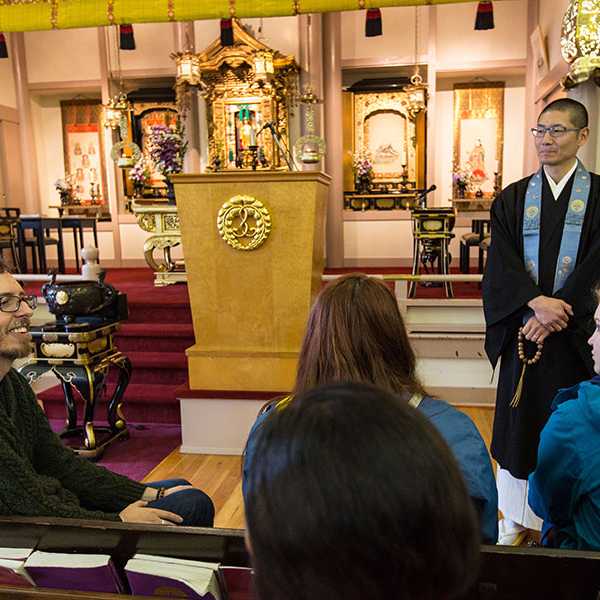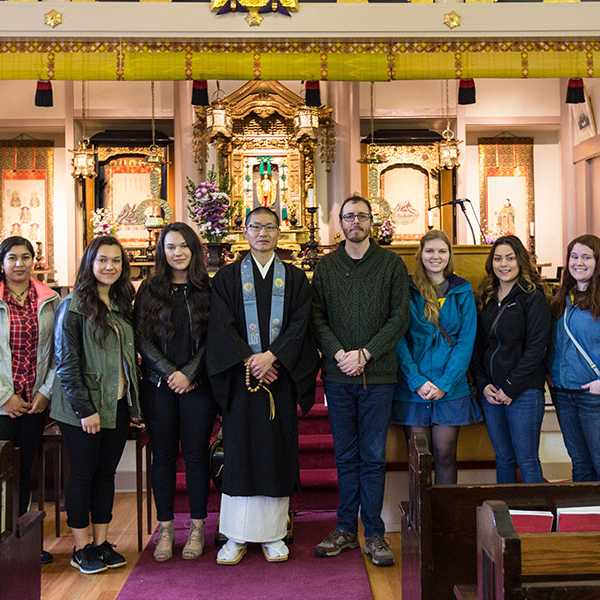Erik Hammerstrom says Lutheran higher education encourages learning about what’s different
Erik Hammerstrom, Ph.D., makes interfaith education a priority at Pacific Lutheran University. He says Lutheran higher education is intellectually inclusive, and therefore his calling to promote interfaith dialogue is a perfect fit.
“Free inquiry includes asking about other religious traditions,” said Hammerstrom, associate professor of East Asian and comparative religions.
Hammerstrom already teaches classes that immerse students in Buddhist communities here and abroad. During the summer, he took that commitment to the next level. He participated in a seminar in Chicago on teaching interfaith understanding, which boosted his ability to further PLU’s inclusive mission regarding interfaith education.
“The goal is for us to be able to agree to disagree, while protecting the right to our views,” Hammerstrom said.
He traveled to Chicago July 31-Aug. 4 for the competitive seminar. He was one of 26 faculty members selected from a nationwide pool of applicants. The five- day event was offered by the Council of Independent Colleges and Interfaith Youth Core, a nonprofit organization working to make interfaith cooperation a social norm.
Hammerstrom and other educators from various universities learned about engaging students in constructive dialogue. They dealt with case studies that each participant brought to the table, springing from everyday experiences and challenges related to religion.
He said knowing how to respond to religious difference is a mandatory skill in today’s world.
“(The seminar) strengthened my belief that religious literacy is an essential requirement for American citizens,” he said. “Whether you work in nursing, the military, business or some other field, you will encounter people of different religious backgrounds whose commitments impact the choices they make.”
Hammerstrom is a practicing Buddhist, serving on the outreach and education committees for the Tacoma Buddhist Temple. But he says he’s been trained “to view Buddhism objectively.”
“I want to tear down the romantic notion of Buddhism,” he said, adding that the goal with any faith- based dialogue is to avoid pitfalls of extremes. He wants colleagues and students to think critically about the good and bad in all religions from an objective, scholarly standpoint.
“It’s becoming far more important to get people to talk about religion,” he said, not suspend those conversations. “If we are living out the mission of PLU, we have to help students think through their own commitments.”
Hammerstrom said PLU teaches students how to disagree, which helps people avoid treating others as stereotypes. “The interfaith piece is a lot about treating individuals as individuals,” he said. “Be present to the person in front of you.”
Some other denominations, in contrast, argue that learning about “what’s wrong” is dangerous, he noted. Lutheran higher education takes a different approach — intentionally learning about what’s different or contradictory.
PLU and other institutions of Lutheran higher education don’t see interfaith studies as a threat to Lutheran values, Hammerstrom said. “It’s not only OK,” he said of that approach, “it’s encouraged.”
As for interfaith studies for those who don’t identify with a faith tradition: religion impacts the world, Hammerstrom said. Learning about all religions will help people grasp a better understanding of what’s around them. “It’s difficult to understand current events without understanding religion,” he said.
Hammerstrom said he plans to use what he learned at the interfaith seminar in many ways. He looks forward to working with Ami Shah, Ph.D. — assistant professor of anthropology and global studies and a past participant of the seminar — as well as others across campus to build upon existing interfaith activities.
“I have always worked to teach my students to engage constructively with religious diversity, regardless of their own commitments,” Hammerstrom said. “At the workshop I have learned some new ways of teaching these skills.”
With the recent political climate, those skills taught by Hammerstrom and others at PLU are vital to eliminate divisiveness.
“Given the role religion has played in both resolving and fostering conflict,” Hammerstrom said, “if we’re committed to caring for our communities in the world, it’s important to build bridges between faiths.”



